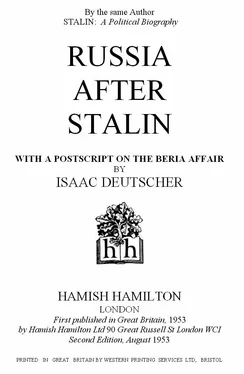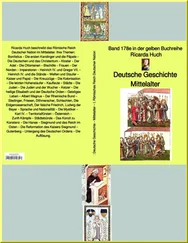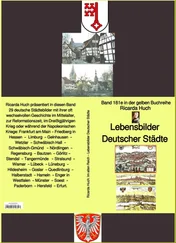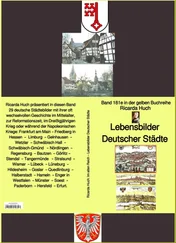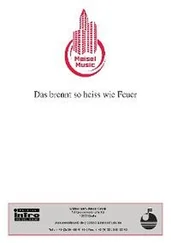In contrast to this, the reforms decreed by Alexander II in 1855-61 isolated the radical opponents of Tsardom and made revolution impossible for half a century. Social discontent had been strong enough to demand reform; but it was not widespread and articulate enough to use the government's concessions as the startingpoint for an all-out onslaught. Revolutionaries who, in the reign of Alexander II, went to the peasants to tell them that the Tsar had cheated them, were manhandled by the peasants and taken to the nearest police station.
The position of Malenkov's government is more like that of Alexander II than like that of Nicholas II. The political muteness of the nation at the end of the Stalin era is an asset to Stalin's successors. So little had the people expected a change and so little had they been capable of achieving it that they would have been exhilarated even by the most modest reforms — and Malenkov's reforms are by no means so modest. The contrast between the state of affairs of April 1953 and that of April 1952 already speaks more loudly in favour of the new rulers than they speak themselves. Anyone lifting his hand against the government would come under a cloud of populär suspicion as one who interferes with the salutary change. The people's patience and hopefulness may secure the stability of Malenkov's government and the chance of a gradual democratic regeneration of the regime.
What is to be understood by this ‘democratic regeneration’?
Its beginning consists in the abolition of the practice of government under which all authority and power of decision were vested in a single leader. This practice characterized the working of the Stalinist administration from top to bottom. The autocrat in the Kremlin had his replicas on every level in government and party. The district party secretary or the chief of a provincial administration was as little subject to control from below and as arbitrary in the exercise of power as was Stalin himself. In recent years the party repeatedly tried to put an end to this state of affairs but in vain. The officials below danced to the tune played on the first fiddle in the Kremlin. As long as autocracy was untamed and unrestricted at the very top of government, arbitrary power lower down defied all attempts to tarne it.
This has begun to change. Contrary to expectation, Malenkov has not ‘stepped into Stalin's shoes’. At the top, government by committee has taken the place of government by a single leader. The Council of Ministers and the Central Committee, not Malenkov, speak on behalf of government and party. Thus a practice which prevailed in the Leninist period is, up to a point, restored.
The change-over has been made easier by the fact that even under Stalin the Führerprinzip never became the party's precept. It was practised in defiance of the accepted theory, not in accordance with it. Despite the Stalin cult, the notions of ‘ democratic centralism’ were instilled in the mind of the party insistently enough to make it possible for Stalin's successors to break with the autocratic principle, without necessarily appearing to depart from Stalinism. It used to be said of the Inquisition that it undid itself because even while it tortured infidels and heretics in the most un-Christian manner it continued to preach the Gospel and to teach the faithful to ‘love thy neighbour’. Similarly, Stalinism has contributed to its own undoing by preaching the proletarian-democratic gospel of Leninism.
Government by committee necessitates free discussion, at least within the committee. The call for free discussion in the party often resounded during Stalin's last years, and it was addressed by the leaders of the party to the rank and file. But nobody could take the call seriously and act on it as long as there was no sign of free discussion higher up, and as long as the dreaded agents of the security police listened in. Now, at last, the call has a more genuine and convincing ring.
Yet for a nation and a party intimidated and gagged during decades nothing may be so difficult as the recovery of speech. Free discussion? But what is there to be discussed? How is a beginning to be made? Who is to start discussion and on what issue? And if repression returns, what will happen to those who opened their mouths? Uncertainty, embarrassment, and awkward silence are the first answer to appeals for free discussion.
One can gauge this mood even from the Soviet Press. The writers have been told that they need not go on mumbling the old magic formulae, and that they ought to deal more freely with events and ideas. Tired as they must be of the old formulae, they are lost without them; and they do not know what to say.
Once again the example must be set by the new rulers. They themselves must begin to discuss affairs of State publicly. But they are naturally afraid of doing so. If they begin to air their differences at this early stage, they will give the impression of disunity and weakness. They prefer to settle their inevitable disagreements within their own narrow circle, and to demonstrate to the country and the world that they are inspired by a single will. Nor does their ambiguous attitude towards Stalinist orthodoxy allow them frankly to explain the direction of their policy, or even to see it clearly for themselves.
But sooner or later they must set the example. Either their own differences will become wide and acute enough to compel some of them to appeal for support to public opinion, or eise the rank and file, constantly exhorted to use their democratic rights, will begin to speak after an interval of perplexity and silence; and the discussion down below may become chaotic and anarchic, unless guidance is offered from above.
The process by which the nation may relearn to form and express its opinions may at first be slow and difficult. It can start only from inside the Communist Party. The regime will, either from self-preservation or from inertia, continue as a single party system for years to come. This need not be an important obstacle to democratic evolution as long as party members are permitted to speak their minds on all matters of policy. All politically minded and active elements of the nation are, anyhow, in the ranks of the Communist Party, if only because there has been no other party to turn to. And within the Communist Party there already exist various potential trends which will become actual and will crystallize in the processes of inner party discussion. Diverse shades of internationalism and nationalism will come to life. Divergent attitudes towards the peasantry will be expressed. Conflicting views will arise about the tempo of further industrialization, consumer interests, educational issues, and a host of other vital problems.
Once the ruling party begins to discuss its affairs it cannot monopolize freedom of discussion for long. It cannot forbid members of other organizations — trade unions, collective farms, cooperatives, Soviets, and educational associations — to do what its own members are allowed and encouraged to do.
The coming epoch may thus bring with it a breath-taking reversal of the process by which the Soviet democracy of the early days of the revolution was transformed into an autocracy.
The Leninist regime did not begin as a single party system. On the contrary, its first promise, made in good faith, was that it would treat with tolerance all parties which did not oppose the revolution arms in hand — for all those parties there was to be room within the new Soviet democracy. Fighting for the life of the revolution and for its own life, Lenin's government broke that promise. It destroyed Soviet democracy and banned all parties; but it still preserved democracy within Bolshevik ranks. Yet it could not allow the Bolsheviks the freedom which it had denied to others. Lenin proceeded to restrict inner party democracy, and Stalin abolished it.
Читать дальше
